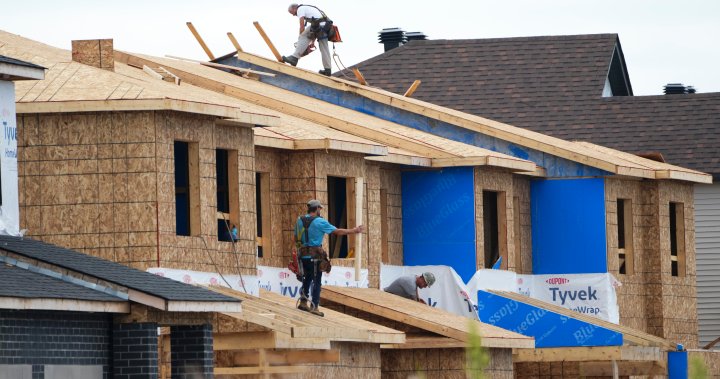A drop-off in the flow of non-permanent residents coming to Canada in the years ahead could deepen a forecasted economic downturn, but a push to keep levels high would come with its own consequences, Desjardins is warning.
A report from the financial institution released Wednesday examines the impact of incoming temporary workers and international students on the country’s economy.
Non-permanent residents (NPRs) like these have been the lifeblood of Canada’s population surge, notes author Randall Bartlett, senior director of Canadian economics at Desjardins. The pace of NPR inflows is set to decline in the years ahead, he argues, as Canada’s economy cools and demand for labour slows.
But there’s a role to play for the federal government here too, in policies that either encourage or discourage immigration. For example, Ottawa said late last year that it would raise the financial burden on prospective students coming to Canada.

Desjardins is among the forecasters calling for a short and shallow recession in the first half of the year, and Bartlett warns that without any additional NPRs, that downturn could be steeper and last nearly twice as long as currently expected.
“Closing the door to temporary newcomers would deepen the recession expected in 2024 and blunt the subsequent recovery,” he writes.
Get the latest National news.
Sent to your email, every day.
“As such, caution is warranted on the part of policymakers to minimize the economic downside of slowing newcomer arrivals too quickly.”
Alternatively, Bartlett argued that “materially increasing the pace of NPR admissions” could raise Canada’s real gross domestic product this year to the point of avoiding a recession entirely.
While the Canadian economy contracted in the third quarter of 2023, baseline forecasts from some economists, including the Bank of Canada, do not include a recession — typically defined as two consecutive quarters of shrinking GDP.
More newcomers could ‘erode’ housing affordability
Ramping up the pace of NPR admissions in a bid to sustain the economy comes with its own trade-offs, however.
Newcomers can help to alleviate labour shortages and build supply in the economy, but additional households also put a drain on resources, which can fire up inflation.
The Desjardins report notes that a sustained push for more NPRs would likely keep inflation elevated, “complicating the Bank of Canada’s job and probably keeping (interest) rates higher for longer than they would be otherwise.”
One of the areas under pressure from a growing population is housing affordability. The Bank of Canada itself has warned that a structural lack of housing supply and demand from newcomers is putting upwards pressure on shelter inflation at a time when the central bank is working to tame price pressures.
Though Ottawa has unveiled a series of policies aimed at speeding up the construction of new housing in Canada over the past few months, the Desjardins report notes that the Liberal government is in a difficult position when it comes to NPRs: sustain economic growth or risk pushing the cost of living higher in Canada.
“Maintaining the current pace of newcomer arrivals will erode housing affordability further in the absence of a monumental increase in the supply of homes,” the Desjardins report notes.
A separate Desjardins report released on Thursday, meanwhile, shows the extent to which Canada’s residential construction industry is facing “significant headwinds” in attempting to restore housing affordability as the population grows.

Many of the issues stymying building progress are macroeconomic in nature, according to the report, including high building costs and interest rates.
But there’s a labour element to Canada’s homebuilding shortfalls, too, Desjardins’ economists note. Despite the surge in NPR workers in recent years, few of those labourers are contributing to the construction industry.
Only five per cent of recent NPRs work in construction, according to Desjardins, despite the industry accounting for eight per cent of Canada’s overall workforce.
“In short, immigration isn’t benefiting construction as much as it does other industries, despite labour shortages in the sector,” the report notes.
“Canada will continue to finetune its immigration policy to meet housing supply objectives in the years ahead.”
© 2024 Global News, a division of Corus Entertainment Inc.










